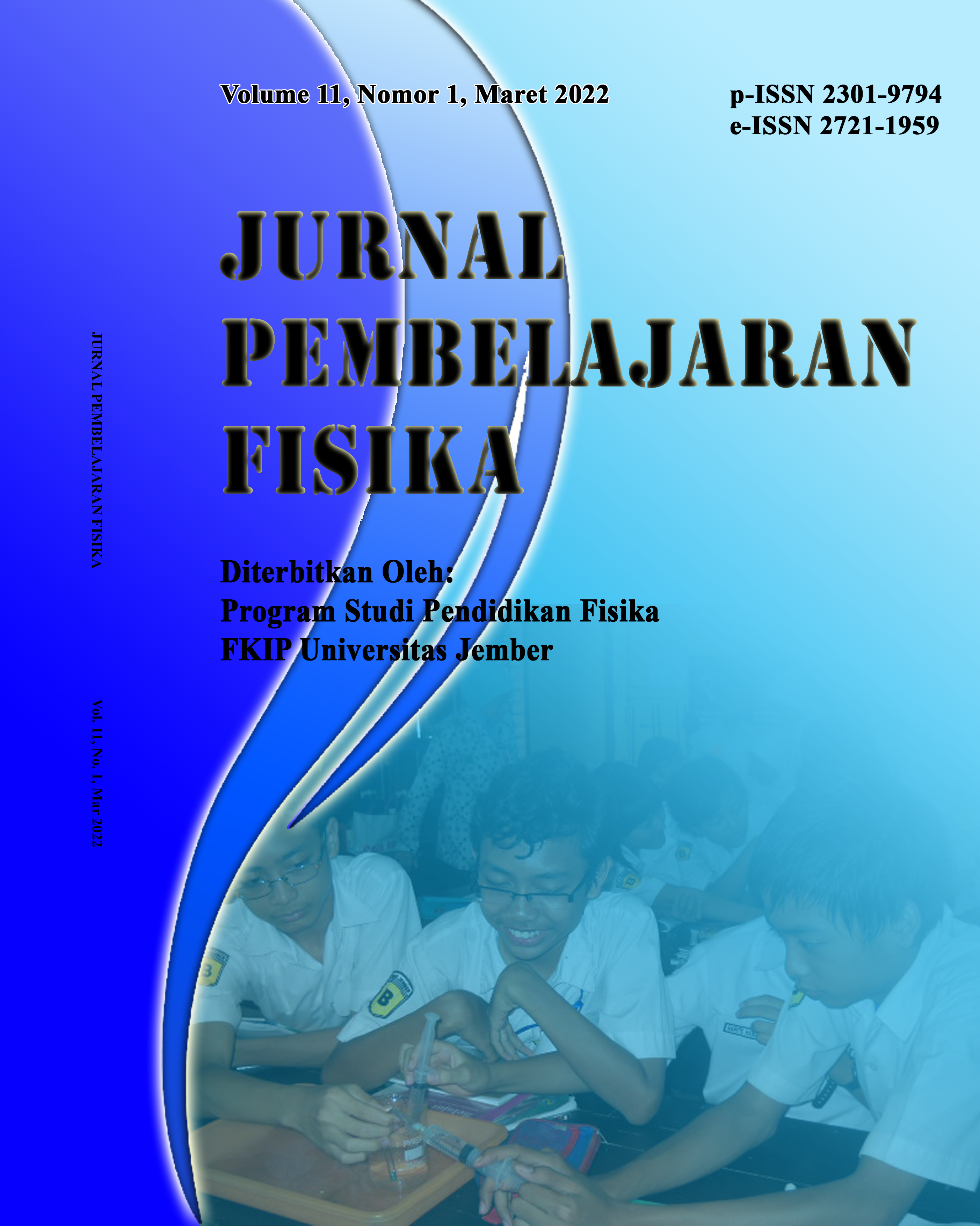RANCANG BANGUN ALAT PRAKTIKUM KALORIMETER COFFEE-CUP PENGUKUR KALOR JENIS BERBANTUAN ARDUINO UNO
DOI:
https://doi.org/10.19184/jpf.v11i1.28075Abstract
Practical activities are a series of activities carried out to apply skills or practice something that requires practical tools in its implementation. The purpose of using practical tools is to meet the needs of practitioners in carrying out a process. One of the physics concepts that can be explained through practical activities is calorimetry. Specific heat is one of the observations made during the practicum using a calorimeter. The specific heat of the material is usually measured using a coffee-cup calorimeter manually. The obstacle faced by the practitioner during the calorimetry practicum is that the measurement of the dependent variables takes up the time and attention of the practitioner in the implementation of the practicum. The objectives of this research are (1) to design an Arduino Uno-based calorimeter practicum tool; (2) explain the work system of the Arduino Uno-based calorimeter practicum tool; (3) measuring the amount of heat on the Arduino Uno-based calorimeter practicum tool; (4) comparing the effectiveness of the Arduino Uno-based calorimeter practicum tool with the coffee-cup calorimeter practicum tool. This study uses a type of research and development (Research and Development) with a Nieveen design conducted in the Laboratory of Physics Education Study FKIP Jember University. Nieveen's design research procedures include Preliminary Research, Prototyping Stage, and Assessment Stage (summative evaluation). Based on the results of data analysis, there is a very strong relationship between the data from the measurement results of the design of the tool and the data from the results of the measuring instruments that have been standardized. The results of the measurement of the specific heat of the material using the design of the tool indicate a conformity with the previous theoretical study.
Key word: arduino-based, calorimeter coffee-cup, calorimetry, sensor loadcell, sensor DHT22.


-14(3)_minimalis_pages-to-jpg-0001_(2).jpg)
_(3)2.jpg)






